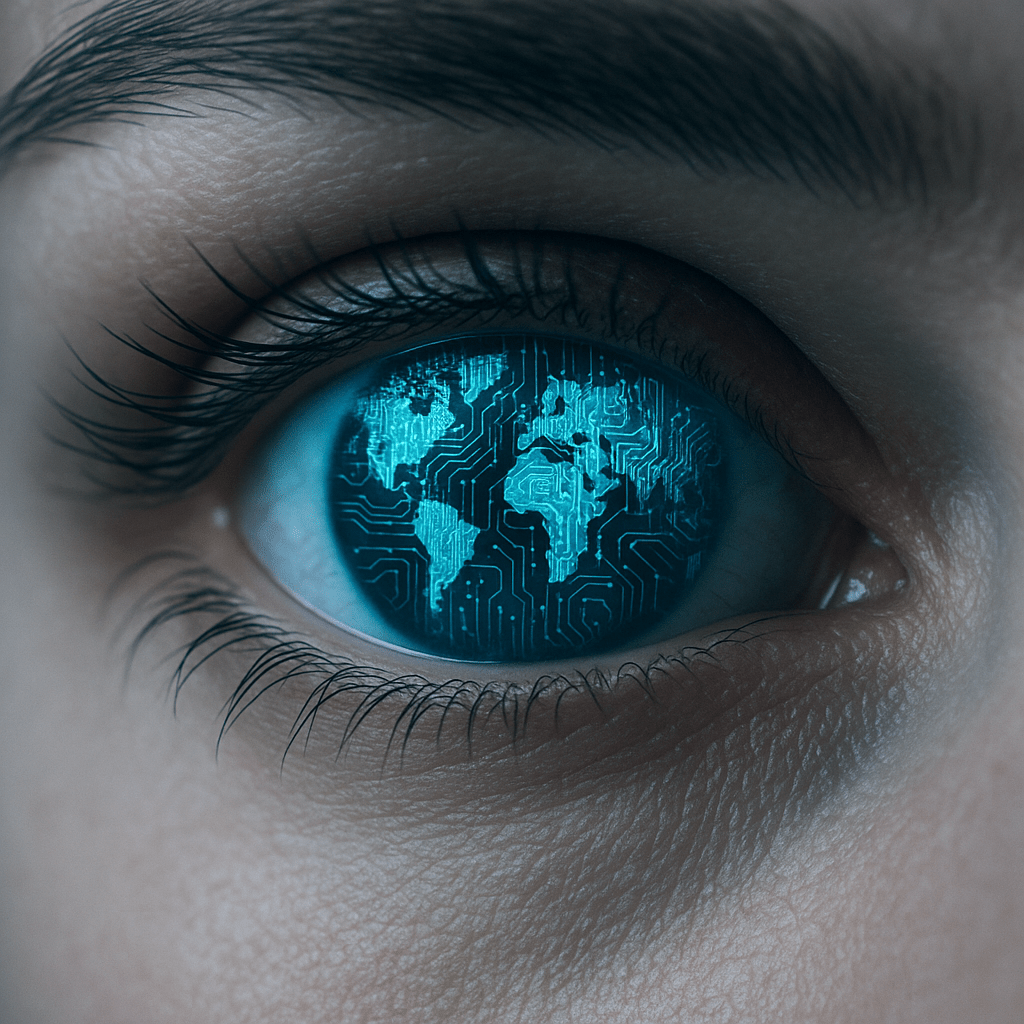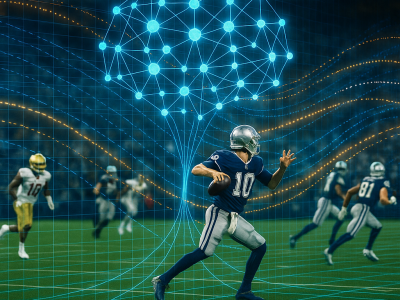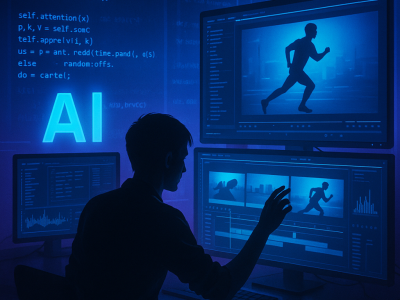In the 1920s, economists Ludwig von Mises and Friedrich Hayek launched one of the most enduring intellectual debates in economics: could a central authority ever plan an entire economy more effectively than the free market? Their answer was an emphatic no.
Nearly a century later, the question has returned with a digital twist. With the rise of artificial intelligence (AI), supercomputers, and real-time data analytics, some argue that machines might finally overcome the limits Mises and Hayek described. If algorithms can predict consumer demand, track supply chains, and balance production, perhaps the dream of a perfectly planned economy is no longer out of reach.
A new study by Emanuele Martinelli from the University of Zurich, published in AI & Society, revisits this very question. In his article, “An agent-based approach to the limits of economic planning,” Martinelli explores whether artificial intelligence could ever replace the spontaneous coordination that markets achieve. His answer is clear: even the most sophisticated algorithms cannot replicate the creative, forward-thinking decisions made by human entrepreneurs.
The dream of technosocialism
Economists have long imagined a world where technology could remove the inefficiencies of the free market. From early Soviet cybernetics to Chile’s famous Project Cybersyn in the 1970s, attempts to build data-driven economies aimed to show that computers could outperform human markets.
Today, the concept has re-emerged under labels like digital socialism, technosocialism, and cybersocialism. With big data, neural networks, and predictive analytics, planners believe AI might succeed where human bureaucrats failed. If machines can process billions of data points in seconds, why not entrust them with running the economy?
According to Martinelli, this optimism overlooks a fundamental issue. Economic life is not simply a computational problem but a dynamic system shaped by countless individual choices. Each decision reflects a dispersed and constantly changing understanding of people’s needs, skills, and relationships. This decentralised flow of information, Hayek argued, is what the price system captures. Prices act as signals that condense local knowledge into actionable information.
Why Hayek still matters in the age of algorithms
In 1945, Hayek described the economy as a “spontaneous order”, a system that organises itself through millions of independent decisions without a single controlling mind. The knowledge problem he and Mises identified was not just technical; it was conceptual. No planner, no matter how advanced, could ever possess the total knowledge required to coordinate an entire economy.
Martinelli extends this insight into the digital age. Modern AI systems, no matter how powerful, remain reactive. They optimise existing parameters and adjust to given goals, but they do not generate new objectives. By contrast, entrepreneurs exhibit proactive agency, the ability to envision new possibilities, set innovative goals, and take calculated risks.
Inside the digital planner’s mind
To illustrate the challenge, Martinelli analyses two major AI-assisted planning models: the Lange–Lerner model and the Cockshott–Cottrell model.
The first, developed during the early Cold War, proposed a “market socialism” where a central planning board would use algorithms to adjust production based on shortages and surpluses. Later thinkers realised this process could be automated with computers. The second model, devised by British computer scientists Paul Cockshott and Allin Cottrell, goes further, envisioning a real-time economy managed by AI systems that track labor values, production outputs, and consumer demand using big data analytics.
In theory, these models could simulate the complex feedback loops of supply and demand. Yet, as Martinelli argues, both frameworks rely heavily on reactive agents, public managers, predictive algorithms, and bureaucratic institutions that respond to existing data rather than create new goals. What is missing is precisely what markets thrive on: entrepreneurial innovation. Without proactive human agents, even the most advanced system becomes stagnant.
There are structural limits to central planning because it is driven by non-biological, reactive agents.
-Emanuele Martinelli
The irreplaceable role of human entrepreneurship
The study highlights that entrepreneurship is more than a business function; it is a cognitive process. Entrepreneurs identify gaps, imagine possibilities, and reshape markets by discovering uses for resources that no algorithm could predict. This creative disruption, what Joseph Schumpeter famously called “creative destruction,” continually renews the economy.
When an entrepreneur notices a sudden demand for renewable batteries or a cultural shift toward plant-based diets, they act not on fixed data but on intuition and vision. They generate new information that redefines the economic landscape. AI, constrained by historical datasets and predefined objectives, cannot replicate this leap of imagination.
Martinelli’s philosophical argument thus reframes the debate: the question is not whether AI can compute the economy’s data, but whether it can ever want to innovate. Without genuine autonomy, AI remains bound by the intentions of its designers and users.
Can artificial general intelligence change the equation?
Some futurists argue that artificial general intelligence (AGI), i.e., machines capable of independent reasoning and goal formation, might one day achieve this. Martinelli remains sceptical. AGI is unattainable precisely because AI’s agency is always delivered, not original. Machines follow embedded goals created by humans; their motivations cannot emerge spontaneously.
This argument echoes recent philosophical critiques of AI agency. Systems like ChatGPT or reinforcement learning algorithms can adapt to changing inputs, but they do not possess intrinsic desires. Their actions remain tethered to external prompts and programming. As philosopher Luciano Floridi puts it, AI today represents “agency without intelligence”, a simulacrum of decision-making rather than genuine intentionality.
Beyond computation: The ethics of control
The findings also carry ethical and political weight. Even if AI could theoretically plan an economy, should it? Centralising decision-making in algorithms raises questions about transparency, accountability, and autonomy.
History offers cautionary tales. From the Soviet Gosplan to Chile’s CyberSyn, central planning often stumbled not because of a lack of data but because of overconfidence in control. Replacing human judgment with machine optimisation risks repeating that error on a global scale.
Martinelli notes that while governments can guide markets through regulations, infrastructure investment, or environmental policy, complete replacement of market processes would eliminate the entrepreneurial diversity that drives innovation. In short, AI can assist, but it cannot replace the invisible hand.
The future of economic intelligence
As the world grapples with economic inequality, automation, and climate change, the appeal of algorithmic governance is undeniable. Yet the new research reminds us that markets are not just mechanisms but living systems animated by human creativity.
The future economy will likely blend both forces: AI as an analytical tool and humans as imaginative agents. The challenge lies in maintaining balance using technology to augment, not annihilate, the unpredictability that makes economies resilient.
Martinelli’s conclusion is both philosophical and pragmatic. “The market’s ability to allocate products and resources according to people’s individual preferences is indispensable,” he writes.
The level of agency entrepreneurs demonstrate in aiding the price system’s evolution is a crucial feature of the economy, one that cannot be planned or emulated.
-Emanuele Martinelli
Reference
Martinelli, E. (2025). An agent-based approach to the limits of economic planning. AI & Society, 40, 3391–3403. https://doi.org/10.1007/s00146-024-02078-9







